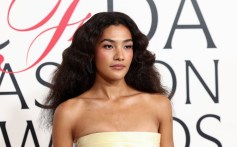Business News
Trending on Billboard
Mexican superstar Carín León has signed with WME’s global co-head of music, Kirk M. Sommer, in all areas, it was announced Tuesday (Dec. 2). Together with León’s manager, Jorge Juárez, the intention is to “grow León’s business and presence in territories beyond his current base.”
Related
“We are thrilled to join the WME team led by Kirk Sommer,” Juárez said in a statement. “Carín has tremendous potential to expand into other global territories. We are looking to WME to lead the way in all areas of their expertise.”
“Carín is a generational artist,” Sommer added. “In his incredible career, he has consistently broken barriers and transcended genres. We are determined to bring the full weight of WME to bear to expand Carín’s fanbase around the world and we are honored to work with both Carín and Jorge.”
Hailing from Hermosillo, Sonora, Mexico, León — known for his signature norteño sound fused with R&B, country and pop — is one of the most versatile voices in Latin music. His debut album, Desvelada con Banda y Mariachi (2018), propelled him to quickly dominate the regional Mexican music scene. In 2021, his album Inédito debuted atop multiple charts and was named one of Billboard’s 25 Best Latin Albums of the Year.
A Grammy and Latin Grammy Award winner, León became the first Latin artist ever to play Coachella and Stagecoach in the same year in 2024, and is now set to become the first Latin artist to play Sphere in Las Vegas, with a run of seven shows set for 2026. He has also sung at Nashville’s Grand Ole Opry, opened for legendary British band The Rolling Stones, and sold out the impressive GNP Seguros Stadium in Mexico City, among other achievements. Earlier this year, he set an attendance record at RODEOHOUSTON with over 70,000 fans showing up to see him perform.
Last month, León took home the Latin Grammy for best contemporary Mexican music album for Palabra De To’s (Seca), which is also up for a 2026 Grammy Award for best música mexicana album.
As with just about every other industry in the world, some of music’s biggest issues in 2025 have revolved around the Trump administration. Artificial intelligence? Upon taking office, Trump revoked an order by President Biden that ensured “safe, secure and trustworthy development” of the technology. Share prices for public companies like Warner Music and Live […]
The sheer number of artist signings announced on a weekly basis makes it difficult to keep up, no matter how closely you pay attention to the industry news cycle. That’s why every other Tuesday, Billboard compiles the latest signings to labels, distributors, agencies, management companies and more, in an effort to provide a snapshot of the latest moves in the artist space, from household names to indie stars to emerging acts.
Related
To start this week, label and management company XOXO Entertainment signed Grammy-winning R&B group Blackstreet. Since 2014, the group’s lineup has featured original members Chauncey “Black” Hannibal and Levi Little, along with Mark Middleton and Eric Williams.
A press release indicates that announcements regarding new music and performances from the group are forthcoming.
“We are beyond excited to partner with Blackstreet,” said XOXO president Adam H. Hurstfield in a statement. “As some of the greatest architects of that legendary 90’s RnB sound, their music shaped the soundtrack of our lives, defined an era, and left an unmistakable imprint on global culture. Around the world, fans have been yearning for that authentic feeling again, and at XOXO Entertainment, we are devoted to bringing it back, side by side with the very legends who created it. We are honored to help amplify Blackstreet’s iconic legacy into this exciting new chapter.”
In its own statement, Blackstreet added that the group “has always stood for timeless music, true artistry, excellence, and evolution. Partnering with XOXO Entertainment feels like the perfect alignment; where vision, passion, and creativity meet. As a group, we’re excited and honored to join forces with a team that shares our energy and commitment to taking BLACKSTREET into a new era. This partnership is powerful, and together we’re ready to create moments the world will remember. This next chapter will be iconic.”
Blackstreet scored a Billboard Hot 100 No. 1 hit in 1996 with “No Diggity” featuring Dr. Dre, which spent four weeks at the chart’s summit. It also enjoyed success with tracks including “Before I Let You Go” and “Take Me There.”
Check out more of the latest artist signings below.
B2K (BPC Music Group)
Trending on Billboard
The hard hats came off for the first official concert at TD Coliseum in Hamilton, Ontario last Friday night (Nov. 21) — and it started with a bang.
The first show at the former Copps Coliseum and FirstOntario Centre arena since its nearly $300-million transformation by American sports and live entertainment company Oak View Group was one of the most prominent music legends still playing today: Sir Paul McCartney. That’s a big flex for a venue aiming to prove itself as both a relief valve for the red-hot Toronto live music touring market and a destination in its own right, as well as Oak View Group’s new flagship venue in Canada.
Related
McCartney has a discography packed full of some of the most immortal songs of all time from the Beatles to Wings to his solo career, and the multigenerational crowd that packed the sold-out 18,000-capacity venue showed their appreciation by shouting and singing along with every song.
Partway through the set, the 83-year-old artist took an informal poll: “How many of you here are actually from Hamilton?” he asked, before repeating the question asking how many are not. Judging by the cheers, it sounded like 60-40 out-of-towners to Hamiltonians. It’s been nearly 10 years since McCartney last played the city, and he made it count with a marathon 36-song setlist that lasted close to three hours.
The arrival of TD Coliseum may be described as an upgrade of an existing arena, but that tag seriously underplays the significance of what is a genuinely dramatic $300 million transformation of the 18,000-capacity venue.
The ribbon cutting on Nov. 20 was attended by Ontario Premier Doug Ford (taking time out on his birthday), several of his provincial cabinet members, the mayor of Hamilton, Andrea Horwath, and high-level representatives from Oak View Group, the Denver-based international venues giant in charge of the project, and its partners, including TD Bank and Live Nation Canada.
Nick DeLuco, senior vice president and general manager of TD Coliseum, launched the event by recalling that “749 days ago, we were here, talking about a vision, a dream of what this venue was going to become, and now it’s real.”
Read more on the opening McCartney concert here and the opening of TD Coliseum here. — Richard Trapunski and Kerry Doole
—
Macklam Feldman Management Celebrates 30th Anniversary
Macklam Feldman Management (MFM) is celebrating 30 years.
As the Canadian-born international talent agency embarks on its third decade, the company is welcoming new team members and a bevy of emerging talent.
Founded in Vancouver in 1995 by industry titans Stephen Macklam and Sam Feldman, the partnership initially emerged to manage Irish folk band The Chieftains. The success of the group proved their joint prowess — and Macklam Feldman Management was born.
Related
Since then, the management company — a subsidiary of Feldman’s A&F Music Ltd. — has overseen and guided the careers of some of the biggest artists in the world including Joni Mitchell, Norah Jones, Leonard Cohen, Bette Midler, Tracy Chapman and James Taylor alongside a roster that today includes legends Sarah McLachlan, Diana Krall, Elvis Costello, Colin James and more.
“We’ve been fortunate to work with some of the most iconic artists in the world, and this recent momentum marks the most concentrated period of investment in artist development since the company was founded,” Feldman tells Billboard Canada.
While working with icons like McLachlan and Costello, Macklam and Feldman are music industry legends in their own right. (The latter also founded The Feldman Agency, one of Canada’s biggest booking agencies, before selling the namesake company to his executive team in 2019.) Recently, however, MFM has increasingly invested in artist development.
Over the last two years, MFM has expanded its team with four new staff members — Samuel Chadwick, Sam Hughes, Connor Macklam and Wesley Attew — who are dedicated to artist development and digital marketing. They will work with artist managers Scott Oerlemans and Kyle Kubicek to strengthen MFM’s artist development and digital marketing operations for their growing roster.
Over the past year, they have welcomed a new wave of artists, including American singer-songwriter aron!, rock band Tommy Lefroy, U.K. post-punk band YAANG and country singer Dawson Gray. They join 2022 signees, emerging folk-pop trio Tiny Habits, who recently opened for McLachlan on her 30th anniversary Fumbling Towards Ecstasy tour. Each brings a fresh musical perspective and global prospects to the agency.
Read more here. — Heather Taylor-Singh
—
New National Report Calls for Boost to Indigenous Music ‘Discoverability’ in Canada’s Streaming Era
As Canada updates its rules for how streaming platforms support local culture, a key opportunity is emerging to strengthen the visibility of Indigenous music at home and abroad.
The Indigenous Music Office (IMO) has released a new study that sheds light on the challenges affecting Indigenous artists and music companies accessing international markets.
Related
Pathways to International Markets: A Strategy to Increase Export Capacity for Indigenous Music is the music organization’s first major research project. The study establishes four key strategic directions that identify the roles that funders, music industry organizations and partners play in increasing financing, professional development and discoverability for Indigenous artists and industry professionals.
In the study, the IMO highlights that export activities generate significant career development opportunities for Indigenous music artists. However, most funds available to the Canadian music industry lack a strategic focus on assisting the development and export of Indigenous music.
“A strategy to increase the export capacity of the Indigenous music sector is timely as demand for Indigenous music is growing in Canada and around the world,” the report reads.
This includes financing the growth of a domestic Indigenous-owned and led music ecosystem, strengthening export readiness of Indigenous artists, prioritizing international showcasing, touring and networking and promoting discoverability of Indigenous music on streaming and broadcasting platforms.
The study calls for promoting “discoverability of Indigenous music on streaming and broadcasting platforms” as the most specific pathway for Indigenous artists and organizations to reach larger audiences.
In addition to working closely with the CRTC on the implementation of Online Streaming Act, the IMO has assisted in the development of the commission’s new Indigenous Broadcasting Policy, in partnership with First Nations, Métis and Inuit broadcasters, along with Indigenous content creators and audiences.
The study was developed amidst the implementation of the Online Streaming Act, a once-in-a-generation update to CanCon regulations, and ongoing Canadian Radio-television and Telecommunications Commission (CRTC) hearings. In September, various Canadian music orgs voiced their opinions on the changes, one of which highlights the importance of artist discoverability for Indigenous musicians.
An important part of the hearings was last year’s CRTC decision to enforce major foreign-owned streaming services with Canadian revenues over $25 million to pay a now-paused 5% of revenues into Canadian content funds, like the Indigenous Music Office and FACTOR.
Read more here. — HTS
Trending on Billboard
Sphere Entertainment Co. shares jumped 11.2% to $76.04 in the week ended Nov. 28. Despite frequent news reports that tourism in down in Las Vegas, the Sphere venue’s growth has propelled shares of its parent, Sphere Entertainment Co., to a 99.2% gain in 2025.
While no market-moving news was released this week, a steady stream of news has painted a positive picture for the venue. The company announced in October that its remake of The Wizard of Oz surpassed $130 million in sales and more than 1 million tickets. Earlier this month, Sphere announced additional shows in The Eagles residency, bringing the band’s run to a venue record of 56 shows. Earlier this week, Sphere Entertainment Co. announced that Christopher Winters was appointed senior vice president, controller and principal accounting officer.
Related
Music stocks had a rare positive week as the 19-company Billboard Global Music Index (BGMI) gained 1.0% to 2,597.30. With 14 of the index’s companies in positive territory, the slight improvement marked the BGMI’s first gain in 11 weeks. Year-to-date, the index is up 20.5% but is 16.7% below its all-time high of 3,117.20 set during the week ended June 30.
Markets around the globe outpaced music stocks this week. In the U.S., the Nasdaq composite gained 4.9% to 23,365.69 and the S&P 500 rose 3.7% to 6,849.09. The U.K.’s FTSE 100 climbed 1.9% to 9,720.51. South Korea’s KOSPI composite index improved 1.9%, bringing its year-to-date gain to 60.8%. China’s Shanghai Composite Index was up 1.4% to 3,888.60.
The biggest gain of the week came from French music streamer Deezer, which rose 13.5% to 1.09 euros ($1.26). The hefty gain narrowed Deezer’s year-to-date loss to 16.8%. On Tuesday (Nov. 25), Deezer unveiled a new personalization feature that allows users to change to look and layout of the mobile app.
K-pop company SM Entertainment rose 6.0% to 102,000 KRW ($69.50). Reservoir Media increased 4.4% to $7.30. SiriusXM and MSG Entertainment each climbed 3.6%. Spotify, the BGMI’s largest component, gained 2.6% to $583.62.
Three of the BGMI’s largest companies — Warner Music Group, Universal Music Group (UMG) and CTS Eventim — lost ground this week. CTS Eventim fell 0.4% to 84.65 euros ($98.18). On Monday (Nov. 24), Bernstein lowered its CTS Eventim price target to 99.00 euros ($114.83) from 100.00 euros ($115.98) and maintained its “outperform” rating. Universal Music Group fell 2.3% to 22.61 euros ($26.22), increasing its year-to-date loss to 7.7%.
Warner Music Group (WMG) shares fell 8.0% to $30.69. The decline didn’t come from news that WMG settled its lawsuit with generative AI music platform Suno — WMG shares had already fallen 7.6% by the time news of the settlement and corresponding licensing agreement was announced on Tuesday afternoon. Rather, the drop is part of a larger trend in recent months amongst multi-sector companies. In the last nine weeks, WMG has fallen 16.6% and UMG is down 11.6%.
Some K-pop companies have fared even worse. Over nine weeks, SM Entertainment has dropped 14.9%, JYP Entertainment has plummeted 33.6% and YG Entertainment has plummeted 7.5%. HYBE, on the other hand, has gained 12% over nine weeks due to a Korean court ruling that NewJeans must honor its exclusive contract with HYBE imprint ADOR.
ASCAP has named media veteran Marc Zelanko as chief of staff, reporting directly to CEO Elizabeth Matthews. In this newly created role, Zelanko will help drive ASCAP’s mission to grow revenues and improve operational efficiency for its 1.1 million songwriters, composers, and music publishers.
Zelanko brings more than 20 years of experience in business operations and transformation within IP-driven media and entertainment companies. Most recently, he served as senior vice president at Paramount Global (formerly ViacomCBS), where he led strategic initiatives to strengthen operations and streamline processes across global teams. His wins include organizing CEO-level leadership forums, managing the COVID Task Force to maintain operations for 15,000-plus U.S. employees, reducing liabilities through HR process improvements and coordinating the Viacom Marketing Council.
Related
In the aughts, he spent five year at MTV Networks, where he rose to senior vp of business operations and notably helped scale Scratch, a creative consultancy launched by the network.
Earlier in his career, Zelanko worked in the Media & Entertainment Group at Booz Allen Hamilton. He holds a degree from Harvard University and an MBA from Harvard Business School.
Matthews praised Zelanko’s appointment, stating: “Marc is the perfect fit to help ASCAP deliver on our mission to grow revenues and drive efficiencies for the benefit of our more than 1.1 million songwriters, composers and music publishers. He brings a wealth of experience working cross-functionally to lead complex global initiatives, and we are excited to add him to our senior leadership team.”
Zelanko added: “ASCAP has a mindset of innovation and evolution to meet the changing needs of its members and licensees. I look forward to bringing my expertise to ASCAP’s mission in support of improving the future for its songwriters, composers and music publishers.”
This announcement follows ASCAP’s recent hire of John Pershing as Senior Vice President and Chief Technology Officer. Pershing, formerly with What If Media Group, brings extensive experience in IT, product development, and data engineering, further strengthening ASCAP’s leadership team.
Check out a full rundown of this week’s staffing news below.
Anne-Marie Pearce & Chris Barton (PPL)
Image Credit: Courtesy Photo
Trending on Billboard
Richard Branson has remembered his late wife Joan Templeman as the “shining star” around which the Branson “family’s universe has always orbited.”
In a pair of posts on Instagram, Branson, the British businessman who founded the Virgin Group and launched scores of recording careers through his labels Virgin Records and V2, said he was “devastated” at the death of Templeman, aged 80.
Related
“Heartbroken to share that Joan, my wife and partner for 50 years, has passed away,” he writes. “She was the most wonderful mum and grandmum our kids and grandkids could have ever wished for. She was my best friend, my rock, my guiding light, my world. Love you forever, Joan.”
The pair married on Necker island in 1989, owned by Branson, and had three children three children — Holly, Sam, and Clare Sarah, who died after four days — and five grandchildren.
In a followup post, Branson writes of her “radiant smile,” her joyfulness, kindness and her nurturing instincts. “Life will never be the same without her. But we have fifty incredible years of memories – years filled with tears and laughter, kindness, and a love that shaped our family more than words could ever capture. It was a relationship that worked. We just had lots of laughs. We were very lucky.”
Branson met his wife back in 1976 at the Manor, Virgin Records’ live-in recording studio. He fell for her “almost from the moment I saw her,” he wrote on his blog in 2020. “Joan was a down-to-earth Scottish lady and I quickly realized she wouldn’t be impressed by my usual antics.”
Templeman was, in his mind, Branson’s better half. “Joan has always been a steady source of wisdom and has played no small part in some of my better life decisions.” It was Templeman who convinced Branson to buy Necker island, for a knockdown price, which he went on to describe as “one of the best decisions I’ve ever made.”
Although the cause of death has yet to be announced, Branson confirms he was by Templeman’s side when she passed “quickly and painlessly”.
Joan’s “light is not gone,” he continues. “It’s just taken on a new shape. It will guide us forward. And we will carry her with us, always.”
Branson is considered one of Britain’s most successful entrepreneurs. He founded the Virgin brand with Nik Powell in the early 1970s, initially with Virgin Records, before expanding into other industries including air travel, record stores, hotels, wines, space tourism and more. He sold Virgin Records to Thorn EMI in 1992 for £560 million ($804 million), and continued to own the Virgin Megastores music retail chain until 2007, when the market for CDs was in a state of collapse.
Branson and Virgin Group returned to the record business in November 1996 with the launch of the indie label V2. Virgin Group sold a chunk in V2 Records to Morgan Stanley in 2002, and disposed its remaining stake to the U.S. investment bank in May 2006. UMG reached an agreement to buy V2 from Morgan Stanley later that year.
Trending on Billboard
Global talent agency Wasserman Music has expanded its flourishing U.K. operation with a trio of new leadership hires across tour marketing, artist services, and artist representation.
The company has enlisted Paul Ryan as senior vice president and agent. Ryan is renowned in the U.K. rock and metal space, having worked across artist management and promotion for scene-leaders Bring Me the Horizon and Architects, among others.
Related
He will continue to work with those acts, alongside Cradle of Filth, Lamb of God, Malevolence and Sleep Token, as well as newly signed names TesseracT and Currents.
Rebecca Laurie joins Wasserman as a manager on the tour marketing team, overseeing domestic and global tour marketing for U.K. agents. Laurie brings over a decade of experience, having spent five years in festival and tour marketing at AEG, as well as stints with UROK and DICE.
Chris Lander has been appointed as vice president within Wasserman’s artist services team. Having held senior roles across podcast production at Global Media, he has contributed to popular U.K. shows including My Therapist Ghosted Me, LuAnna: The Podcast and Take That: This Life.
Lander has also worked in talent development, with a previous roster of leading British comedians and podcast hosts such as James Acaster, Nish Kumar and Deborah Frances-White. His new role will see him identify and execute opportunities for artists in film and television, digital media, gaming, literary, content and IP development, social impact, and more.
Back in September, meanwhile, Wasserman’s Laura Flynn was promoted to a management position on the tour marketing team. She has since worked across successful U.K. arena tour launches for RAYE, Louis Tomlinson, D-Block Europe and The Neighbourhood.
“We’re thrilled to welcome Paul, Chris, and Rebecca to our team, and to have Laura join our tour marketing division,” Alex Hardee, Wasserman Music executive vice president and managing executive, said in a statement.
“Each brings a unique skill set that strengthens our presence in the U.K. and broadens the opportunities we can deliver for our artists. Their passion, experience, and vision will be invaluable as we continue to grow.”
If you’re looking for vinyl records that sound better than streaming, it’s a great time to be a music fan. For years, executives wondered how big the vinyl business could get — I remember being told it would peak soon in 2014, when the format accounted for $315 million in U.S. revenue, according to the RIAA, […]
Trending on Billboard Chordal has onboarded Futures Music Group and eight additional music companies to its sync licensing platform, the company tells Billboard. The new deals follow major alliances with TikTok and Kobalt Music Group, both of which became Chordal clients over the summer. Futures, an indie label collective co-founded by Neon Gold’s Derek Davies […]

 State Champ Radio
State Champ Radio 









